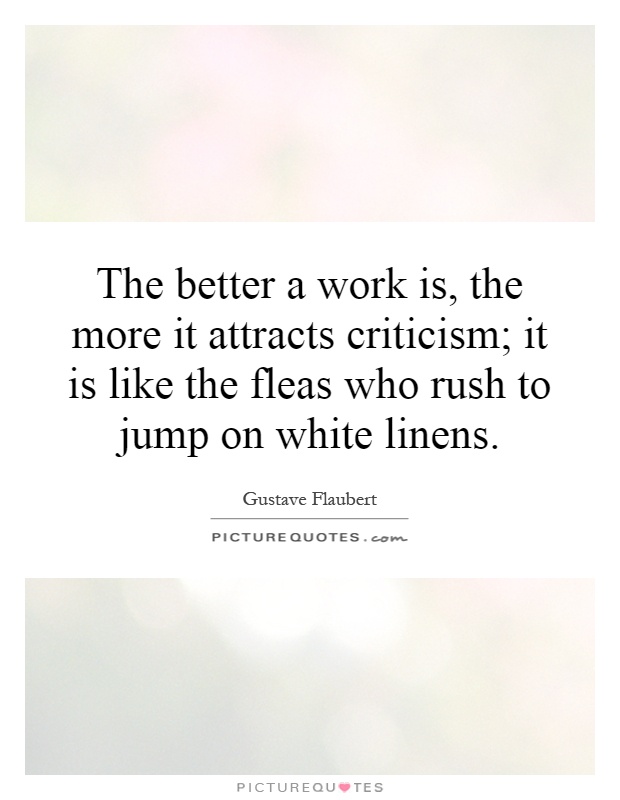The better a work is, the more it attracts criticism; it is like the fleas who rush to jump on white linens

The better a work is, the more it attracts criticism; it is like the fleas who rush to jump on white linens
Gustave Flaubert, a renowned French novelist known for his meticulous attention to detail and dedication to his craft, understood all too well the truth behind the saying, “The better a work is, the more it attracts criticism; it is like the fleas who rush to jump on white linens.” Throughout his career, Flaubert faced his fair share of criticism, particularly for his controversial novel, Madame Bovary.Madame Bovary, published in 1857, tells the story of Emma Bovary, a young woman trapped in a loveless marriage who seeks escape through extramarital affairs and material possessions. The novel was met with harsh criticism upon its release, with many critics condemning Flaubert for his portrayal of a morally corrupt protagonist and his explicit descriptions of adultery and suicide. However, despite the backlash, Madame Bovary is now considered a masterpiece of French literature and a seminal work of realism.
Flaubert’s dedication to his craft and his commitment to portraying the complexities of human nature in all its flawed glory set him apart as a writer of unparalleled skill and insight. His meticulous attention to detail and his unwavering pursuit of perfection in his writing made him a target for criticism, as his work often exposed uncomfortable truths about society and human behavior.
Flaubert once said, “I am irritated by my own writing. I am like a violinist whose ear is true, but whose fingers refuse to reproduce precisely the sound he hears within.” This quote encapsulates Flaubert’s perfectionism and his relentless pursuit of artistic excellence. Like the fleas that rush to jump on white linens, critics were drawn to Flaubert’s work because of its brilliance and its ability to provoke thought and discussion.












 Friendship Quotes
Friendship Quotes Love Quotes
Love Quotes Life Quotes
Life Quotes Funny Quotes
Funny Quotes Motivational Quotes
Motivational Quotes Inspirational Quotes
Inspirational Quotes